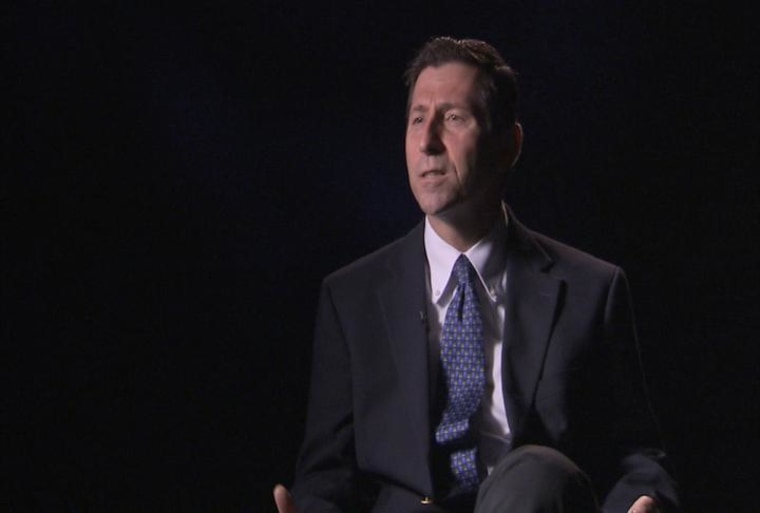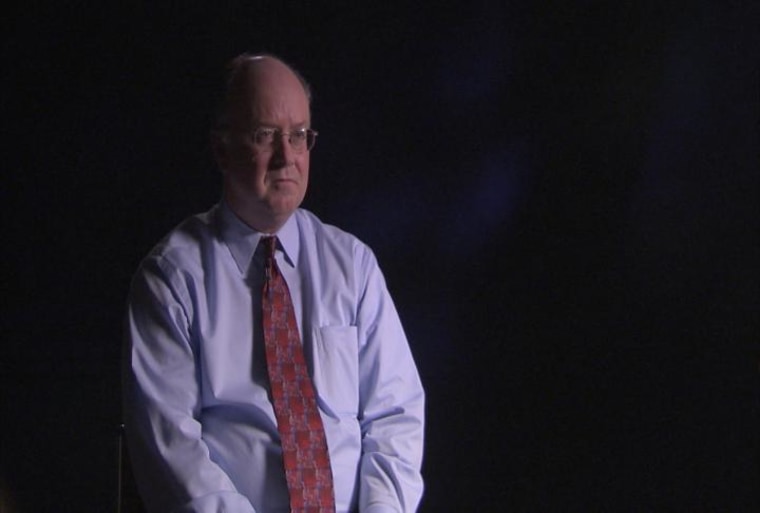In the course of writing their book, “American Terrorist: Timothy McVeigh and the Oklahoma City Bombing,” Lou Michel and Dan Herbeck of the Buffalo Daily News spent over 40 hours interviewing Tim McVeigh in prison, interviews which they audio taped. Those audio tapes form the basis of "The McVeigh Tapes: Confessions of an American Terrorist."

Why is the story important now?
Michel: Sadly, the story remains incredibly relevant, given that terrorism remains the number one security issue in the world. Consider the Moscow subway bombings a few weeks ago and what goes on almost daily in Iraq and Afghanistan. It raises the question - will countries, such as ours, continue to use the same recipe for fighting terrorists with wars or is there a different universal way to go about getting at the heart of this scourge? "The McVeigh Tapes" will provide insight.

How did you get the interview?
Michel: Burning the shoe leather is the short answer. I kept stopping by Bill McVeigh’s (Tim McVeigh’s father) home in Pendleton and developed a trusting journalistic relationship. When his son was ready to speak, Tim McVeigh asked his father if he knew of a journalist that was trustworthy. My name came up.
Why didn't he talk to anyone else?
Michel: He wanted someone from the area where he was raised because he knew that would provide ready access to the many people who knew him as a boy and teenager. He wanted people that would confirm his humanity since he was being portrayed as an outright monster. Of course that did not stop Dan and me from interviewing people beyond this region in search of all the different and complex sides to this man.
What was McVeigh's hometown like?
Herbeck: Tim McVeigh grew up in Pendleton, a mostly rural town that is only about a half-hour from downtown Buffalo. It's also close to Niagara Falls, the world famous tourist attraction. The town was founded in 1827 and had plenty of rich farmland. McVeigh loved the wide open spaces in Pendleton, and the fact that there were plenty of places around where he could go on hikes and do some target shooting. He also loved going on long, solitary bike rides through the countryside and along the Erie Canal. He lived in a middle-class home and grew up in surroundings not much different from those of many millions of young men throughout the United States. But in McVeigh, something snapped.
What do you think caused him to become a terrorirst?
Herbeck: As his psychiatrist, Dr. John Smith, told us, no one thing caused McVeigh to be a terrorist. It was a combination of things -- his distress over his parents' breakup, his bad experiences with bullies as a kid, his killing experiences in the Persian Gulf War, his love of guns, his association with extremists he met at gun shows and his fear of government crackdowns on gun owners. But we have little doubt that the two things that put him over the edge were the Randy Weaver incident in Ruby Ridge, Idaho, and the incident at Waco, which occurred exactly two years before his bombing. In the Weaver incident, two members of Weaver's family and a federal agent died in a gun battle in 1992. In the Waco incident, A 1993 battle with federal agents at a religious cult's compound in Waco led to 80 deaths. McVeigh considered both those events to be signs that the federal government was taking away personal freedoms. From the day of the Waco assault, McVeigh was in terrorist mode.
Do you feel like he was using you as a mouthpiece for his anti-government views?
Herbeck: If you work as a journalist, people will attempt to use you as a mouthpiece every single day. Many people who talk to the media do it because they are trying to put across one point or another -- whether it's about politics, social issues, religion or other controversies. So yes, McVeigh was trying to use us to get his story out. We would be naive not to realize that. But in telling that story, we did hundreds of interviews with other people, many of whom did not agree with McVeigh's views or his actions. That is why it is so important, in a story like this, to hear the stories of the victims of the bombing. To McVeigh, the bombing was a strike against the government, but to the innocent victims in Oklahoma City, it was a tragic, life-changing event that destroyed many people and families.
What reaction did victims and their families have to your book?
Herbeck: A few of the victims were outraged by our book, and they went public with their feelings. They felt it was wrong to tell the story of a terrorist. But other victims thanked us for writing the book. They told us that McVeigh's remarks horrified them, but they were thankful that it gave them some understanding of why this man did this to them. One thing that we decided before the book was published was never to criticize, in any way, any bombing victim in Oklahoma City, regardless of what they said about us. They are entitled to their feelings. The one thing we have asked people, from Day 1, was to read the book before deciding whether it was good or bad. Some of the victims who criticized us were reacting to rumors. They never actually read the book, and we think that is unfortunate.
Do you think the book, and now this documentary, gives McVeigh too much of a platorm to expound his anti-government views?
Herbeck: If McVeigh had his way, our book would have contained much, much more information about his political views and theories. We did not publish much of what he told us about these issues. Some people will say they don't want to hear anything about Timothy McVeigh's views, and we respect their feelings on that. But others are interested in hearing what made a terrorist tick, what made him kill 168 people. We feel that it is best for society to learn all it can about horrible crimes like this, in hopes of preventing more incidents like it.
Do you see commonalities between current anti-government sentiment and 1995?
Michel: There’s no question that the militia movement is on the rise again. Some of the same factors that caused McVeigh, in his mind, to believe he had become disenfranchised from mainstream society are again in the mix. Growing government regulations, lack of employment. Those are things McVeigh would cite if he were alive. McVeigh, more disturbingly, was ideological connected to terrorists even beyond our borders. Except for some demographic differences, he shared many of the same motivations as young men elsewhere.
"The McVeigh Tapes: Confessions of an American Terrorist" airs April 19, Monday, 9 p.m. ET on msnbc. Watch preview video clips here.